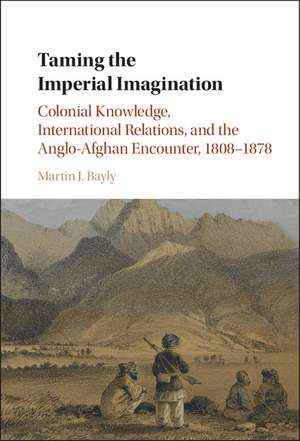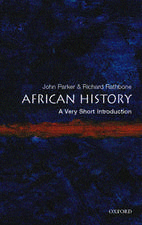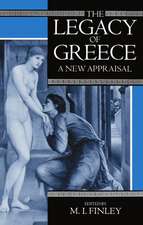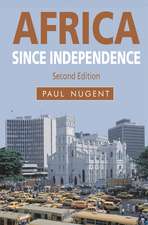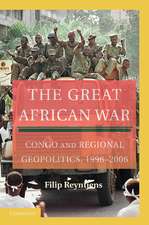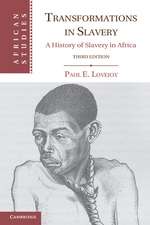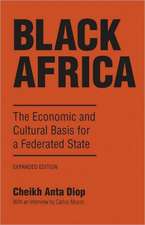Taming the Imperial Imagination: Colonial Knowledge, International Relations, and the Anglo-Afghan Encounter, 1808–1878
Autor Martin J. Baylyen Limba Engleză Hardback – 18 mai 2016
| Toate formatele și edițiile | Preț | Express |
|---|---|---|
| Paperback (1) | 288.62 lei 6-8 săpt. | |
| Cambridge University Press – 24 iul 2018 | 288.62 lei 6-8 săpt. | |
| Hardback (1) | 755.02 lei 6-8 săpt. | |
| Cambridge University Press – 18 mai 2016 | 755.02 lei 6-8 săpt. |
Preț: 755.02 lei
Preț vechi: 877.94 lei
-14% Nou
Puncte Express: 1133
Preț estimativ în valută:
144.47€ • 151.25$ • 119.54£
144.47€ • 151.25$ • 119.54£
Carte tipărită la comandă
Livrare economică 05-19 aprilie
Preluare comenzi: 021 569.72.76
Specificații
ISBN-13: 9781107118058
ISBN-10: 1107118050
Pagini: 352
Ilustrații: 2 b/w illus. 1 map 2 tables
Dimensiuni: 157 x 231 x 25 mm
Greutate: 0.61 kg
Editura: Cambridge University Press
Colecția Cambridge University Press
Locul publicării:New York, United States
ISBN-10: 1107118050
Pagini: 352
Ilustrații: 2 b/w illus. 1 map 2 tables
Dimensiuni: 157 x 231 x 25 mm
Greutate: 0.61 kg
Editura: Cambridge University Press
Colecția Cambridge University Press
Locul publicării:New York, United States
Cuprins
Introduction; Part I. Knowledge: 1. Early European explorers of Afghanistan; 2. Knowledge entrepreneurs; Part II. Policy: 3. 'Information … information': Anglo-Afghan relations in the 1830s; 4. Contestation and closure: rationalising the Afghan polity; Part III. Exception: 5. The emergence of a violent geography, 1842–53; 6. Overcoming exception, 1853–7; 7. 'Science' and sentiment: the era of frontier management, 1857–78; Conclusion.
Recenzii
'Focusing on the shifting parameters of 'knowledge communities', this impressive book situates Afghanistan and the Afghan frontier in a multi-layered and evolving set of British Imperial and colonial policies and practices during the nineteenth century. It is essential reading for all students of modern Afghanistan and for those concerned with colonial knowledge formations and the history of imperialism.' Shah Mahmoud Hanifi, James Madison University, Virginia
'According to Edward Said, 'From travelers' tales … colonies were created'. In recent years scholars have explored the details of the dialectical relationship between colonial knowledge and imperial policy. In Taming the Imperial Imagination, Martin J. Bayly continues the work begun by Christopher Bayly on British information gathering in India, pushing the investigation north of the Durand Line into Afghanistan. Bayly reconstructs the images of Afghanistan upon which British officials drew in crafting their policy decisions. After discussing the work of the founding figures, he tracks the emergence after 1830 of a more unified concept of the Afghan polity. This book is an important contribution to the histories of British imperialism and Anglo-Afghan relations and to the re-historicization of the international relations discipline.' George Steinmetz, Charles Tilly Professor of Sociology, University of Michigan
'Bayly, in a single volume, demolishes powerful self-fulfilling myths. Speaking to multiple audiences with interests across the historical and thematic spectrum, this book is a must-read for anyone wanting to understand why Afghanistan looks the way it does in 2017, and more importantly, why many view it the way they do.' Avinash Paliwal, International Affairs
'Taming the imperial imagination is at once an intellectual history of British constructions of Afghanistan as well as a critical theoretical argument regarding the variegated manifestations of space, sovereignty and territory - the currency of much IR literature - over time. … ultimately, the book's intellectual ambition is equalled by the author's sophisticated and compelling argument.' Benjamin D. Hopkins, Cambridge Review of International Affairs
'This is no ordinary book about British colonial-era engagement with Afghanistan. In fact, it is as far removed from orthodox military histories of the Anglo-Afghan experience as it is possible to be. More than anything it chooses to intellectualise the subject in an uncommon fashion and in the process delivers an entirely refreshing approach to what is in danger of becoming a tired and unimaginative field of study. … It is as much a book about the present as it is about the past, and for that reason is a must-read for anyone interested in the formulation of foreign policy and military strategy with respect to those dark corners of our world that stoke the fears of Western imagination.' Christian Tripodi, International Journal of Military and Historiography
'According to Edward Said, 'From travelers' tales … colonies were created'. In recent years scholars have explored the details of the dialectical relationship between colonial knowledge and imperial policy. In Taming the Imperial Imagination, Martin J. Bayly continues the work begun by Christopher Bayly on British information gathering in India, pushing the investigation north of the Durand Line into Afghanistan. Bayly reconstructs the images of Afghanistan upon which British officials drew in crafting their policy decisions. After discussing the work of the founding figures, he tracks the emergence after 1830 of a more unified concept of the Afghan polity. This book is an important contribution to the histories of British imperialism and Anglo-Afghan relations and to the re-historicization of the international relations discipline.' George Steinmetz, Charles Tilly Professor of Sociology, University of Michigan
'Bayly, in a single volume, demolishes powerful self-fulfilling myths. Speaking to multiple audiences with interests across the historical and thematic spectrum, this book is a must-read for anyone wanting to understand why Afghanistan looks the way it does in 2017, and more importantly, why many view it the way they do.' Avinash Paliwal, International Affairs
'Taming the imperial imagination is at once an intellectual history of British constructions of Afghanistan as well as a critical theoretical argument regarding the variegated manifestations of space, sovereignty and territory - the currency of much IR literature - over time. … ultimately, the book's intellectual ambition is equalled by the author's sophisticated and compelling argument.' Benjamin D. Hopkins, Cambridge Review of International Affairs
'This is no ordinary book about British colonial-era engagement with Afghanistan. In fact, it is as far removed from orthodox military histories of the Anglo-Afghan experience as it is possible to be. More than anything it chooses to intellectualise the subject in an uncommon fashion and in the process delivers an entirely refreshing approach to what is in danger of becoming a tired and unimaginative field of study. … It is as much a book about the present as it is about the past, and for that reason is a must-read for anyone interested in the formulation of foreign policy and military strategy with respect to those dark corners of our world that stoke the fears of Western imagination.' Christian Tripodi, International Journal of Military and Historiography
Descriere
A new perspective on empire, international relations and foreign policy through attention to British colonial knowledge on Afghanistan from 1808 to 1878.
